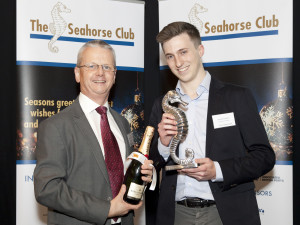London, 15 July 2019
Having successfully surpassed twenty years of heritage, this competition is now a traditional feature in the international freight forwarders calendar. The collaboration between, leading international insurer, TT Club and the International Federation of Freight Forwarders Associations, FIATA is once more in a position to announce the regional winners of the Young International Freight Forwarder of the Year Award (YIFFYA) 2019.
In introducing these bright young professionals FIATA President Babar Badat said, “Encouraging more young professionals to join the FIATA community has always been a priority for me. I am encouraged again to see these excellent candidates presenting dissertations that cover a wide range of logistic subjects, which demonstrate the challenges that forwarders face every day and the customized solutions they are able to offer. My sincere congratulations to the four regional winners who are ….”
Europe – Mrs Evgeniya Khokhlova Russia (FAR)
Africa/ Middle East – Mr Enos Chapra Zimbabwe (SFAAZ)
Americas – Ms Rachael van Harmelen Canada (CIFFA)
Asia Pacific – Mr Phillip Burgess New Zealand (CBAFF)
TT Club has had the honour to sponsor the competition throughout its twenty plus years of existence and Mike Yarwood, TT Club’s Senior Loss Prevention Executive and Chairman of the Award Steering Committee commented, “In the current challenging global trade environment, where supply chains are under increasing pressure to adapt quickly to regulatory, political and economic pressures, we at TT Club believe the training and professional advancement of young freight operators must be paramount.”
“This award aims to contribute to the development of quality professionals and reward young talent.”
At the FIATA World Congress in Cape Town (1st – 5th October), hosted by the South African Association of Freight Forwarders, the four regional winners will be invited to
present their dissertations to the Award Steering Committee, the final judging will take place and the winner of the YIFFYA for 2019 will be announced.
The prize to be awarded to the winner principally consists of practical and academic training, including a week based at one of TT Club’s regional centres in London, Hong Kong or New Jersey plus a week in TT Club’s Head Office in London. Additionally, one year’s subscription to the International Transport Journal (ITJ) is provided to all four regional winners.
The entries this year were, as ever, of a high standard and drew from a wide range of dissertation topics. The work of the entrants demonstrated the complexity of processes carried out within the global supply chain and the logistics skills required to serve it. Both FIATA and TT Club wish to thank all those individuals who entered this year’s competition and also to acknowledge their employers and national freight forwarding associations for the enthusiasm and commitment they have shown to on-going training with the international logistics and freight forwarding sector.
ENDS
About TT Club
TT Club is the international transport and logistics industry’s leading provider of insurance and related risk management services. Established in 1968, the Club’s membership comprises ship operators, ports and terminals, road, rail and airfreight operators, logistics companies and container lessors. As a mutual insurer, the Club exists to provide its policyholders with benefits, which include specialist underwriting expertise, a world-wide office network providing claims management services, and first class risk management and loss prevention advice.
About FIATA
The International Federation of Freight Forwarders Associations (FIATA) was founded in Vienna, Austria on 31 May 1926. It is a non-governmental organisation that today represents an industry covering approximately 40,000 forwarding and logistics firms, employing around 10 million people in some 160 countries. FIATA has consultative status with the Economic and Social Council (ECOSOC) of the United Nations, the United Nations Conference on Trade and Development (UNCTAD), and the UN Commission on International Trade Law (UNCITRAL) as well as many other UN related bodies such as the World Bank. It is recognised as representing the freight forwarding industry by many other governmental organisations, governmental authorities, private international organisations in the field of transport and logistics, such as the European Commission (through CLECAT), the International Chamber of Commerce (ICC), the International Air
Transport Association (IATA), the International Union of Railways (UIC), the International Road Transport Union (IRU), the World Customs Organization (WCO), and the World Trade Organization (WTO). Learn more at www.fiata.com.








 rch Foundation over the last three years, thanks to the ‘Play for Pink’ Golf Day held last month. A total of 112 players representing companies throughout the US maritime and insurance community and also from Venezuela and Panama participated at the Forsgate Country Club in New Jersey.
rch Foundation over the last three years, thanks to the ‘Play for Pink’ Golf Day held last month. A total of 112 players representing companies throughout the US maritime and insurance community and also from Venezuela and Panama participated at the Forsgate Country Club in New Jersey.